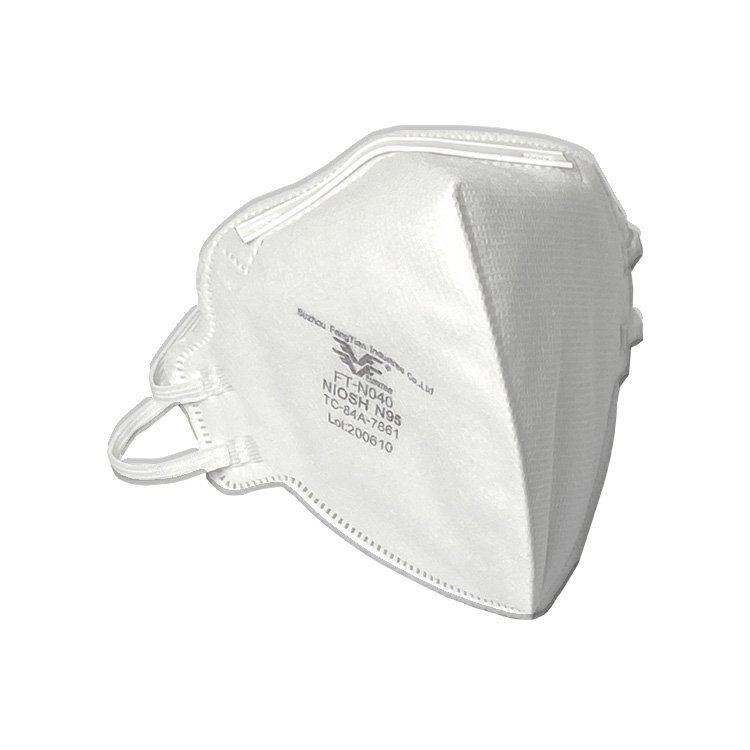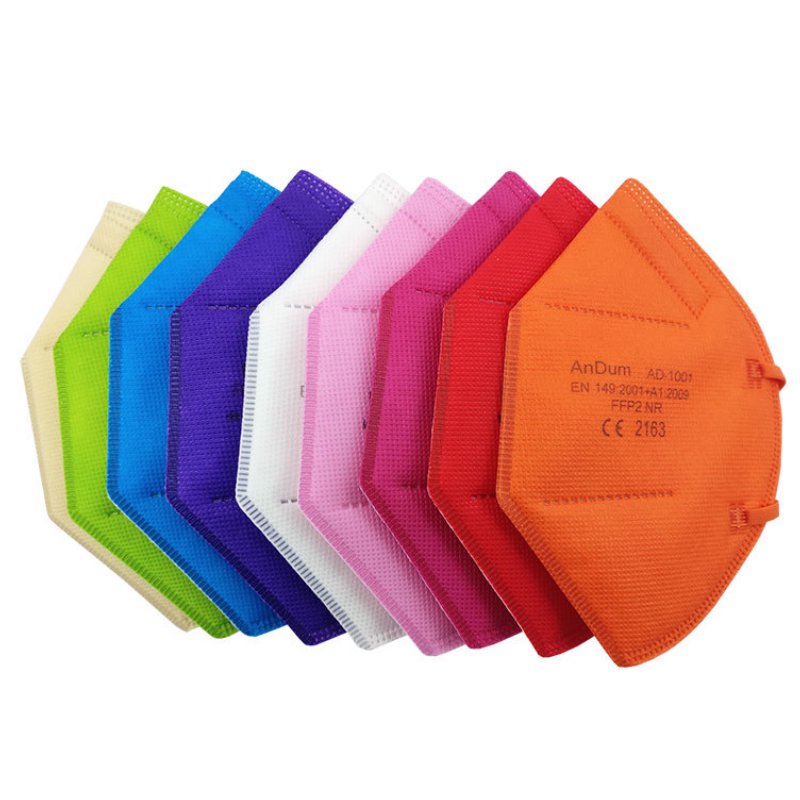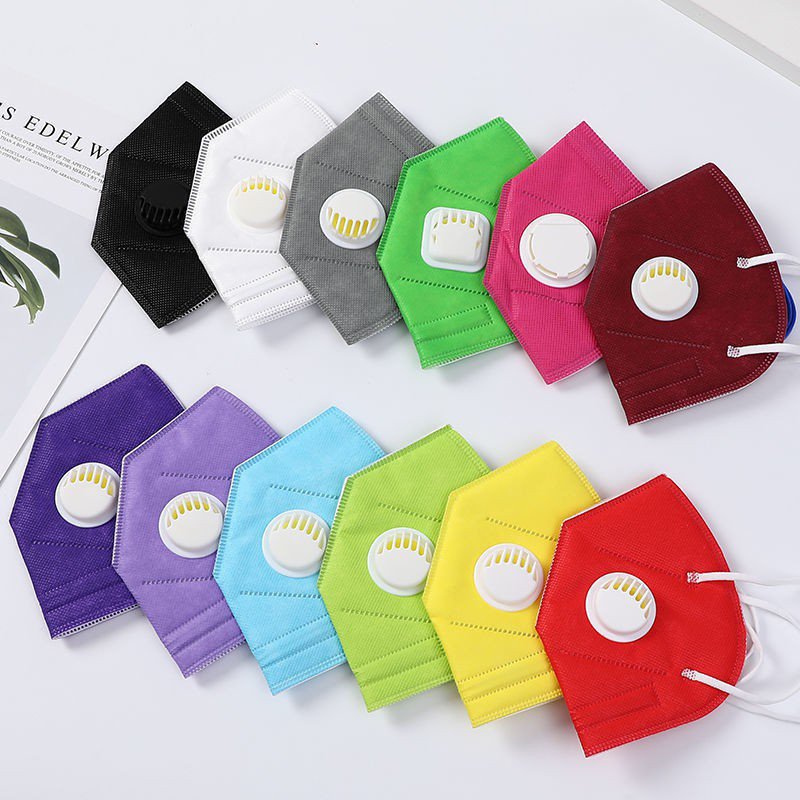In today's challenging times, making the right choice when it comes to respiratory protection masks is of paramount importance. This article will take you on a journey to delve into various types of respirator masks such as N95, KN95, FFP2, and FFP3 masks, and their performance and certification standards. We will also explore how to select the appropriate respirator mask for different situations, from safeguarding against airborne pathogens to protecting against dust and allergens, and even to DIY home improvement and occupational use. Irrespective of the scenario you find yourself in, ensuring a proper fit of the mask to your face is crucial. Therefore, Wellmien is here to provide you with expert guidance to make informed choices for your safety and well-being.
N95 respirators, certified by the National Institute for Occupational Safety and Health (NIOSH) in the United States, are renowned for their exceptional filtration efficiency. These masks can effectively filter out at least 95% of harmful airborne particles, including viruses, bacteria, and fine particulate matter. They are designed with multiple layers of material, such as melt-blown polypropylene, that traps tiny particles. N95 respirators are commonly used in healthcare settings to protect healthcare workers from infectious diseases, making them crucial in controlling the spread of viruses like COVID-19. The fit of an N95 mask is crucial, and they are often fitted through a process called fit testing to ensure an airtight seal.

KN95 masks, certified in China, share remarkable similarities with N95 respirators in terms of design and filtration efficiency. They are designed to filter out at least 95% of airborne particles and are considered highly effective in protecting the wearer from viruses and other harmful substances. KN95 masks have gained global popularity and are often seen as viable alternatives to N95 masks. However, it's imperative to purchase KN95 masks from reputable and trusted sources, as there have been concerns about counterfeit and substandard products in the market.
In Europe, you'll come across FFP2 and FFP3 masks, which adhere to the EN 149 standard and have a filtration efficiency of at least 94% and 99%, respectively. These masks are used in a variety of settings, including healthcare and industrial environments, where protection against different airborne hazards is essential. FFP2 masks are suitable for many applications where filtering out solid or liquid aerosols is required, while FFP3 masks provide the highest level of filtration for situations involving hazardous particles, such as in healthcare and construction where there may be exposure to infectious agents or dust.
Surgical masks are primarily designed to protect patients from the wearer's respiratory droplets and are commonly used in healthcare settings. They are loose-fitting and do not provide a tight seal. Respirators, such as N95 masks, offer personal protection by effectively filtering harmful particles and creating a secure seal around the wearer's nose and mouth. They are recommended for personal protection in high-risk situations where there's a need to guard against inhaling hazardous particles, such as viruses or fine dust. This distinction is crucial, as the choice between the two depends on whether you aim to protect yourself or others.
Half-face respirators cover the nose and mouth and provide protection for various applications. They are widely used in various industries and offer a balance between protection and comfort. Full-face respirators, in addition to covering the nose and mouth, also protect the eyes and face. They are an ideal choice when there is a risk of eye hazards, exposure to chemicals, or the need for comprehensive protection. Full-face respirators often come with integrated eye protection, ensuring all facial areas are shielded from potential harm. These respirators are commonly used in chemical and industrial settings where multiple hazards exist.
When selecting respiratory protective masks, understanding NIOSH (National Institute for Occupational Safety and Health) ratings is crucial to ensure performance and effectiveness. NIOSH ratings typically start with "N" (Not resistant to oil) and "P" (Oil-proof), followed by a number, such as "N95." This number represents the mask's filtration efficiency. For instance, an N95 mask can filter out at least 95% of airborne particles, while an N100 mask achieves a filtration efficiency of up to 99.97%. These ratings are essential for choosing the appropriate mask, especially in environments that demand high-level protection, such as medical or industrial settings.
The European standard EN 149 and CE certification are European standards used to assess the performance of respiratory protective masks. EN 149 standardizes the design, performance, and testing requirements of masks, while CE certification is a mark of compliance with European legal requirements, indicating that the mask has undergone relevant tests and meets the standards. CE certification is often a prerequisite for selling masks in the European market. Choosing a mask with EN 149 certification and the CE mark provides additional assurance that it meets European performance standards.
Filtering efficiency is a key indicator for assessing the performance of respiratory protective masks. This percentage is typically associated with the mask's name or rating. For example, the "95" in N95 denotes a filtration efficiency of 95%. This means the mask can filter out 95% of tiny airborne particles, including bacteria and viruses. Similarly, the "99" in N99 indicates a filtration efficiency of 99%, and the "100" in N100 signifies an exceptionally high filtration efficiency of 99.97%. These numbers are crucial for evaluating mask performance, enabling you to choose masks suitable for specific environments and requirements. Masks with high filtration efficiency offer greater protection, especially in high-risk settings.
Understanding these concepts can help you make informed decisions when purchasing respiratory protective masks. Different mask ratings and certification symbols reflect their performance and suitability for specific environments, making the choice of the right mask critically important to ensure the level of protection you need.

Respirator Masks: These masks are often bulkier and may feel less breathable due to their tight, secure fit and multiple layers. They are designed for protection, which can occasionally lead to discomfort during extended wear. Features like adjustable straps and exhalation valves enhance comfort. While they offer high protection, they may be less breathable and more challenging to wear for long periods.
Cloth Masks: Cloth masks are generally more comfortable and breathable for everyday use. They are lighter, and the materials used are often more breathable. Many cloth masks come with adjustable ear loops and soft, comfortable materials, making them suitable for extended wear in less risky environments.
Respirator Masks: Can feel bulkier and less breathable. Designed for a tight fit and extended wear may cause discomfort.
Cloth Masks: Generally more comfortable and breathable for everyday use. Lightweight and adjustable options enhance comfort.
When it comes to protecting yourself from airborne pathogens like COVID-19, high-filtration respirator masks are essential. N95, KN95, or FFP2/FFP3 masks are excellent choices. These masks provide a high level of filtration efficiency, typically above 95%, and can help safeguard you against inhaling viral particles. Proper fit is crucial; ensure the mask forms a tight seal around your nose and mouth. In healthcare or crowded public spaces, where the risk of exposure to pathogens is high, these masks are the top recommendation.
For protection against dust and allergens, especially during activities like gardening or cleaning, masks with lower filtration efficiency may be suitable. Nuisance dust masks, often marked as N95 but with no NIOSH approval, are designed for these scenarios. They offer basic protection against larger airborne particles and irritants but are not intended for pathogens. Comfort and breathability are important here, as you may wear the mask for longer periods.
For DIY home improvement and renovation projects, a respirator mask with a good balance of protection and comfort is crucial. Half-face respirators, equipped with N95 or P100 filters, provide effective protection against dust, paint fumes, and other common home improvement hazards. These masks offer a secure fit, while the filters can be tailored to the specific task. Full-face respirators are also an option for comprehensive protection, especially when working with chemicals or paints that can harm the eyes and face.

Occupational settings often require specific respiratory protection based on the nature of the work. Jobs involving exposure to hazardous chemicals, fumes, or particulates demand respirators with a higher filtration level. Employers should follow occupational safety and health regulations to select the appropriate respirator. Full-face respirators, powered air-purifying respirators (PAPRs), and supplied air respirators (SARs) are common choices for occupational use, offering a range of protection levels and comfort features.
In all cases, it's essential to ensure that the respirator mask you choose is properly fitted to your face. Fit testing is recommended, particularly for high-risk situations. Also, consider factors like comfort, ease of breathing, and the duration you'll be wearing the mask, as these aspects vary across different mask types and brands. Ultimately, the right respirator mask for a particular situation strikes a balance between providing the necessary protection and being practical and comfortable for the task at hand.
Whether you are in the medical field, engaged in home renovations, or pursuing a career, selecting the right respirator mask is a vital step in protecting yourself from harmful particles and pathogens. Wellmien stands ready to offer you high-quality respiratory protective masks and professional advice to ensure you receive optimal protection in any environment. We are committed to your safety and health, and we are always here to support you. Choose Wellmien, choose protection.